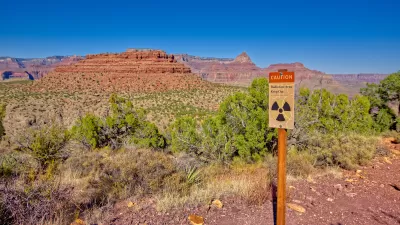The federal government gives more research and development subsidies to fossil fuels than clean energy technologies. But, why?
Columnist Phillip Bump of Grist writes on the counterintuitive role federal subsidies play in the energy industry. When comparing research and development subsidies for fossil fuels versus those for cleaner renewables, Bump finds, "[f]ossil fuels received far more research and development subsidies...than did clean energy projects."
This should come as a surprise to many, as the federal government, and government in general, is often viewed as renewable energy's main proponent. Additionally, and from an international standpoint, as Bump writes, "if we want to position the United States as a leader in the emerging clean energy sector, we can't let existing energy systems both kill research and development for clean energy and block attempts to internalize their own costs."
Best put, "[i]magine if your little store was trying to compete with Walmart and the government was giving Walmart far more money than you."
FULL STORY: Columnist: Millions for coal and oil, but not one more penny for clean energy

Planetizen Federal Action Tracker
A weekly monitor of how Trump’s orders and actions are impacting planners and planning in America.

Map: Where Senate Republicans Want to Sell Your Public Lands
For public land advocates, the Senate Republicans’ proposal to sell millions of acres of public land in the West is “the biggest fight of their careers.”

Restaurant Patios Were a Pandemic Win — Why Were They so Hard to Keep?
Social distancing requirements and changes in travel patterns prompted cities to pilot new uses for street and sidewalk space. Then it got complicated.

Platform Pilsner: Vancouver Transit Agency Releases... a Beer?
TransLink will receive a portion of every sale of the four-pack.

Toronto Weighs Cheaper Transit, Parking Hikes for Major Events
Special event rates would take effect during large festivals, sports games and concerts to ‘discourage driving, manage congestion and free up space for transit.”

Berlin to Consider Car-Free Zone Larger Than Manhattan
The area bound by the 22-mile Ringbahn would still allow 12 uses of a private automobile per year per person, and several other exemptions.
Urban Design for Planners 1: Software Tools
This six-course series explores essential urban design concepts using open source software and equips planners with the tools they need to participate fully in the urban design process.
Planning for Universal Design
Learn the tools for implementing Universal Design in planning regulations.
Heyer Gruel & Associates PA
JM Goldson LLC
Custer County Colorado
City of Camden Redevelopment Agency
City of Astoria
Transportation Research & Education Center (TREC) at Portland State University
Camden Redevelopment Agency
City of Claremont
Municipality of Princeton (NJ)





























